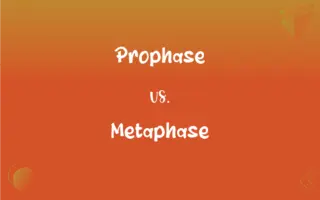Approve vs. Authorize: What's the Difference?
Edited by Harlon Moss || By Janet White || Published on December 22, 2023
Approve means to officially agree with or accept as satisfactory, while authorize means to give official permission or power to do something.

Key Differences
Approve generally implies a positive opinion or endorsement of an idea, action, or item, reflecting acceptance or agreement. Authorize, however, implies a formal granting of power or rights, often by someone in a position of authority.
When one approves something, they are often expressing a personal or organizational acceptance or satisfaction with it. To authorize means to officially empower someone or something to take a specific action, often legally.
Approval is often used in contexts where judgment or acceptance by an individual or group is required. Authorization, on the other hand, typically involves a legal or formal empowerment to act in a certain capacity.
The act of approving can be subjective and based on personal or collective preferences or standards. Authorizing, in contrast, is an objective act that usually follows set rules or procedures to grant permission or power.
Approval does not necessarily grant the power or right to act, but rather signifies agreement or endorsement. Authorization directly grants permission or power, often associated with specific roles, responsibilities, or tasks.
ADVERTISEMENT
Comparison Chart
Definition
Officially agree with or accept
Give official permission or power
Context
Personal or organizational
Legal or formal
Action
Expressing acceptance or agreement
Empowering someone to act
Basis
Subjective, based on preferences
Objective, following rules
Outcome
Agreement or endorsement
Permission or power to act
ADVERTISEMENT
Approve and Authorize Definitions
Approve
Approve means to formally accept or endorse something.
The committee approved the new policy after thorough discussion.
Authorize
Authorize means to empower someone to act.
The government authorized the construction of new highways.
Approve
Approve involves making a judgment of satisfaction.
The architect approved the final design plans.
Authorize
Authorize means to give official permission.
The director authorized the release of confidential documents.
Approve
Approve can indicate personal or official agreement.
She approved the proposed budget for the event.
Authorize
Authorize can imply legal or formal consent.
The committee was authorized to make the final decision.
Approve
Approve can mean to express favor or support.
The manager approved of the team's innovative approach.
Authorize
Authorize involves granting authority or power.
The CEO authorized her assistant to sign the contract.
Approve
Approve means to ratify or sanction something.
The board approved the merger between the two companies.
Authorize
Authorize means to officially sanction an action.
The president authorized military action in the region.
Approve
To consent to officially or formally; confirm or sanction
The Senate approved the treaty.
Authorize
To grant authority or power to.
Approve
To consider right or good
"He came to ask me ... whether I approved his choice altogether" (Jane Austen).
Authorize
To give permission for (something); sanction
The city agency that authorizes construction projects.
FAQs
Is 'approve' a formal word?
Yes, it is often used in formal contexts, especially in administrative, business, or official settings.
Can 'approve' be used in personal contexts?
Yes, it can be used informally to mean that someone thinks positively of something or someone.
How is 'approve' commonly used?
It's frequently used in phrases like "approve a plan," "approve a budget," or "approve of a decision."
What's the noun form of 'approve'?
The noun form is "approval."
What does 'approve' mean?
To approve means to officially agree with or accept something as satisfactory.
Can 'approve' and 'agree' be used interchangeably?
Not always. 'Approve' implies official sanction, while 'agree' is more general.
Is there a difference between 'approve' and 'endorse'?
Yes. 'Endorse' often implies public or formal support, while 'approve' is more about personal or official acceptance.
Does 'approve' require an object?
Often, but not always. For example, "The committee approved the proposal."
Is 'authorize' a formal word?
Yes, it's typically used in formal, legal, or official contexts.
Can 'approve' be passive?
Yes, e.g., "The plan was approved by the board."
What does 'authorize' mean?
Authorize means to give official permission for something or to empower someone to act.
What's the noun form of 'authorize'?
The noun form is "authorization."
What is the opposite of 'authorize'?
Forbid, disallow, or revoke authorization.
Can 'authorize' be used in a personal context?
Yes, but it usually retains a sense of formality or officiality.
Is 'authorize' always about people?
Not always. It can refer to authorizing actions, processes, or transactions.
What is the opposite of 'approve'?
Disapprove or reject.
Can 'authorize' and 'permit' be used interchangeably?
They are similar, but 'authorize' often implies a more formal or official permission.
Does 'authorize' always involve legal or formal power?
Mostly, but it can also be used in less formal contexts to mean empowering someone in a general sense.
Can 'authorize' be passive?
Yes, e.g., "The transaction was authorized by the manager."
How is 'authorize' commonly used?
It's often used in contexts like "authorize a payment," "authorize access," or "authorize someone to act."
About Author
Written by
Janet WhiteJanet White has been an esteemed writer and blogger for Difference Wiki. Holding a Master's degree in Science and Medical Journalism from the prestigious Boston University, she has consistently demonstrated her expertise and passion for her field. When she's not immersed in her work, Janet relishes her time exercising, delving into a good book, and cherishing moments with friends and family.
Edited by
Harlon MossHarlon is a seasoned quality moderator and accomplished content writer for Difference Wiki. An alumnus of the prestigious University of California, he earned his degree in Computer Science. Leveraging his academic background, Harlon brings a meticulous and informed perspective to his work, ensuring content accuracy and excellence.































































